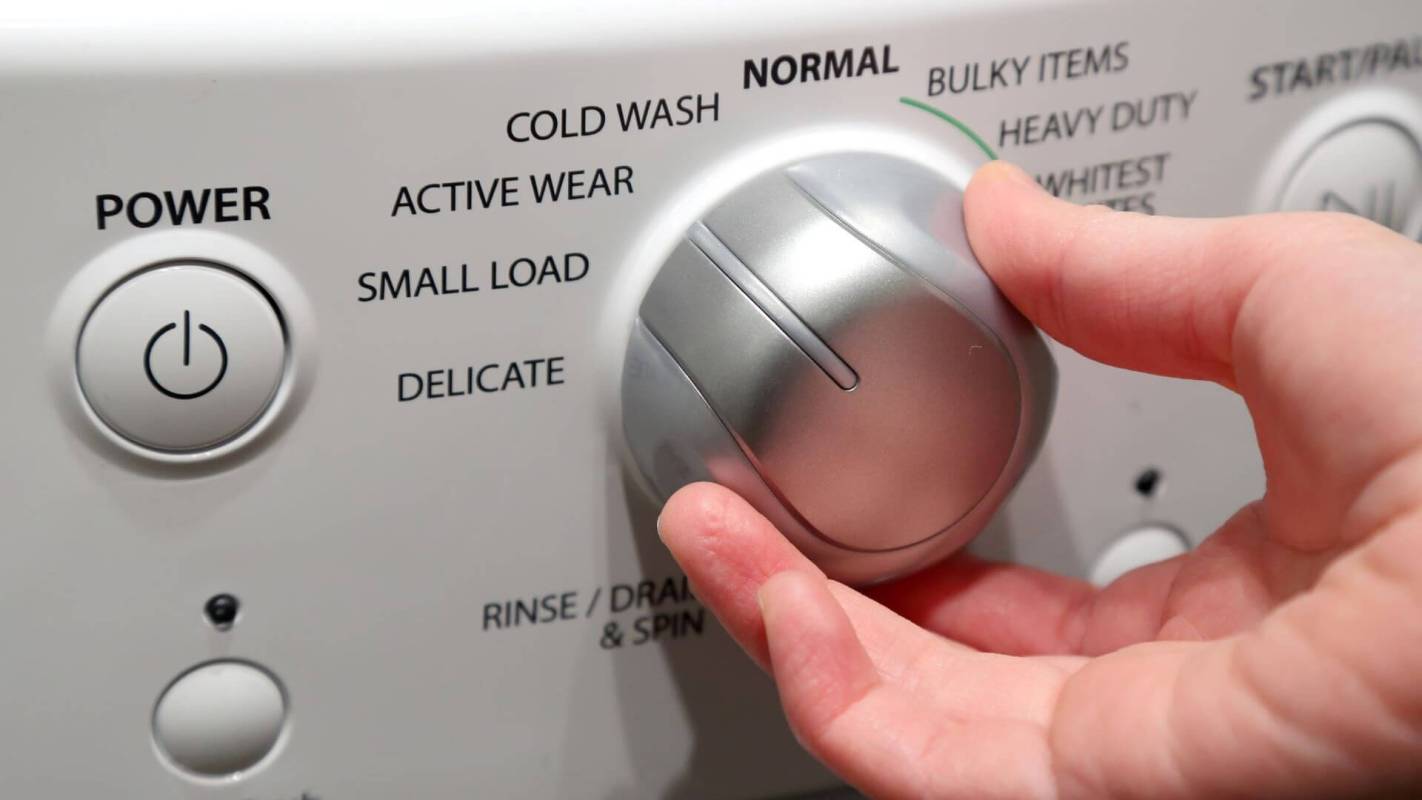It seems like there's always more laundry to do. You finish one load, and another is already waiting.
As it turns out, our laundry habits have a big impact not just on the longevity of our clothing but also on the environment. A few quick switches — like washing clothes in cold water — can make a big difference for our planet.
How your laundry habits affect the environment
When we think about the impact of our clothes on the environment, most of us likely think of the problems caused by fast-fashion retailers like H&M, Forever 21, and Shein. But another major source of pollution can be found right in our laundry rooms.
Roland Geyer, a life cycle assessment expert, told the Washington Post that our laundry routines can have "the same order of magnitude" as the production of clothing.
According to Energy Star, an energy-efficient appliance brand, the standard washing machine uses around 20 gallons of water per load. Meanwhile, Maytag estimates that the average dyer uses anywhere from 1,800 to 5,000 watts of electricity per cycle.
The best solution: energy-efficient appliances. According to the Environmental Protection Agency, installing a washer and dryer certified by Energy Star could reduce your carbon footprint by more than 400 pounds of emissions a year. That's the equivalent of planting a quarter-acre of trees.
But buying a new washer and dryer may not be practical for everyone. Thankfully, there are other, smaller changes that still have a big impact.
How to save energy when doing laundry
The first trick? Turn that temperature down. Washing on cold can cut your energy use in half. According to Energy Star, 90% of the energy our washing machine uses goes toward warming the water. The hot cycle should really only be used to sanitize clothes when needed.
The second tip may sound a little gross, but washing your clothes less can have a major impact on your energy bill. Every time we wash a garment, we're cutting its lifespan and using energy.
"Lots of people just have a T-shirt worn once and then they put [it] in the laundry basket without thinking whether it's clean or not," Elena Karpova, a professor at the University of North Carolina at Greensboro who studies textile and apparel sustainability, told the Washington Post. "People don't think about, 'Is it clean? Does it need to be laundered?' It's just you go through the motions."
Finally, skip the drying. If you don't need those socks as soon as they come out of the dryer, consider hanging them on a line or an indoor drying rack.
"If you're air drying, that's saving the most energy," Joe Vukovich, a staff attorney at the Natural Resources Defense Council told the Washington Post.
Join our free newsletter for easy tips to save more, waste less, and help yourself while helping the planet.









